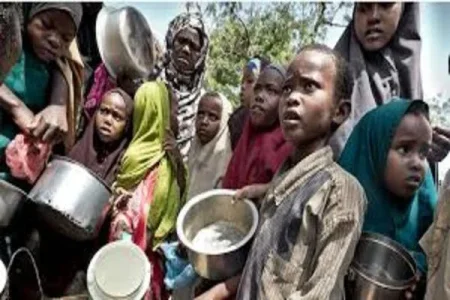
Nigeria has surged to second place in global food insecurity rankings, with over 24 million people facing hunger. The 2024 Global Report on Food Crises attributes this to conflict, economic shocks, and climate change. Rising food prices and insecurity in agricultural regions have exacerbated the crisis, demanding urgent intervention.
Nigeria has climbed to second place among countries facing severe food insecurity, according to the 2024 Global Report on Food Crises. The report reveals that over 24 million Nigerians are currently battling hunger, positioning the country just behind Congo DR, where 25.8 million people face similar challenges. This alarming development marks a significant increase from previous years, reflecting the worsening state of food security in Nigeria.
The report attributes Nigeria's escalating food crisis to a combination of conflict, economic instability, and extreme weather conditions. Regions that traditionally produce food are increasingly disrupted by insecurity, forcing many farmers to abandon their fields. Additionally, recent economic reforms, including the removal of the petrol subsidy and the devaluation of the naira, have exacerbated the situation. These changes have led to skyrocketing food prices, further straining the resources of already vulnerable populations.
Nigeria's current food insecurity crisis is part of a broader trend affecting 59 countries worldwide, where nearly 282 million people are experiencing high levels of acute food insecurity. The drivers of these crises are often interlinked, with economic shocks, conflict, and climate change creating a complex web of challenges that are difficult to address.
Despite government efforts to mitigate the impact of these economic reforms through palliative measures, the situation remains dire. As Nigeria continues to grapple with rising inflation and food shortages, the need for urgent and comprehensive interventions has never been more critical.
The rise in food insecurity highlights the urgent need for coordinated action at both national and international levels to address the underlying causes and provide relief to those most affected.




